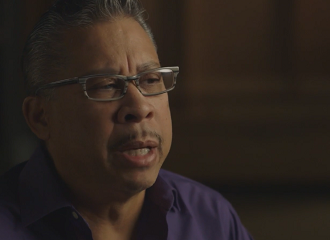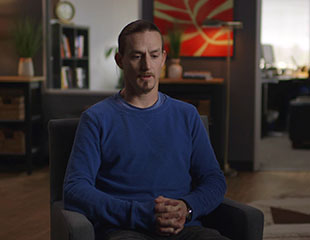People with schizophrenia can have a variety of symptoms; not everyone will experience the same ones. Some symptoms of schizophrenia reflect the presence of experiences or behaviors—such as hallucinations and delusions—that are not typically present in the general population. These symptoms, sometimes referred to as psychotic symptoms, often involve losing touch with reality. These are some psychotic symptoms:
- Hearing or seeing things that do not exist, commonly called hallucinations
- Firmly believing something to be true when it is actually false, known as delusions
- Moving your body in unusual ways, such as twitching or rocking back and forth
- Responding to questions with answers that do not make sense
- Acting in an unusual way, such as with extreme excitement or anger
Other symptoms of schizophrenia reflect an absence or lack of typical mental function involving feeling, thinking, or behaving. You might notice these symptoms:
- Feeling like you have no emotions
- Having incomplete thoughts
- Letting your personal hygiene go unattended
- Getting no enjoyment or pleasure out of life
“The line between schizophrenia’s symptoms and those for some other conditions can be very thin at times. That’s why we have to rely on each other, our doctors, and our families to keep our mental health in check.”
Schizophrenia can also affect your thinking and make it difficult to focus, pay attention, or make plans. These “cognitive” symptoms of schizophrenia are very similar to common effects of alcohol or drug use. If these symptoms continue after the effects of taking drugs or alcohol have worn off and when you are no longer using these substances, it may be a sign of schizophrenia.
Finding out that you have schizophrenia and experiencing its symptoms for the first time can be very difficult and scary, but there are many effective schizophrenia treatments and assistance options available that can significantly improve the way you feel and how you live your daily life. It is strongly recommended that you seek professional treatment for schizophrenia.
Medicine is commonly used to treat schizophrenia, and antipsychotic medications have been shown to be helpful. You and your doctor can discuss the benefits and possible side effects of medicines available for schizophrenia.
Many Veterans also find therapy or counseling to be a great help when dealing with the symptoms of schizophrenia. Cognitive behavioral therapy can help you learn ways to deal with your symptoms. Counseling can also help you improve your personal relationships and manage schizophrenia symptoms so they interfere less with your everyday life. You and your family might find it helpful to attend family support groups to work on strategies for dealing with the stress of schizophrenia.
In addition to treatment, you can adjust your lifestyle to help manage schizophrenia symptoms. These are some of the things you can do that may help:
- Only use drugs prescribed by your doctor, and take your medicine as prescribed.
- Avoid excessive alcohol use, or don’t drink alcohol at all.
- Adopt an active and healthy lifestyle by eating right and exercising.
- Find ways to reduce stress in your life.
- Get the right amount of sleep.
Even severe symptoms of schizophrenia can be controlled with good treatment. However, symptoms can still occur while receiving treatment, so an ongoing relationship with a doctor will help you make any needed adjustments. Schizophrenia is a chronic condition that requires ongoing management.
You might think that what you’re going through is just a phase that will be over soon. However, schizophrenia is not something that will simply pass on its own—it needs to be taken very seriously and treated. It’s important to remember that schizophrenia isn't caused by a lack of self-discipline or some other character flaw.
Your family and close friends may be the first to notice that things don’t seem right or that you’re having a tough time. Consider what they have to say and turn to them when you are ready to talk. It can be helpful to share what you’re experiencing, and they may be able to provide support and help you find treatment that is right for you.
“My husband did a lot of things in the military but the bravest thing I ever saw him do was admit that some of his ‘issues’ were more serious than he let on.”
Coping with schizophrenia can be challenging. You might think others would be better off without you or that you would be better off dead. These thoughts are very serious and need immediate attention. It’s important that you talk to someone right away if you have thoughts of death or suicide.
To reach the Veterans Crisis Line, Dial 988 then Press 1, use the online chat service, or send a text message to 838255. The Veterans Crisis Line offers free, confidential support 24 hours a day, 7 days a week, 365 days a year.
Every day, Veterans from all military service branches and eras connect with proven resources and effective treatments. Here’s how to take the next step: the one that’s right for you.
New to VA? Apply for health care benefits.
- Getting started is simple. Create a free account online to help ease your enrollment process. To prepare to apply for VA health care in person, by telephone, or by mail, explore VA’s “How to Apply for VA Health Care” page.
- Not sure whether you are eligible for VA health care benefits? Read about eligibility for VA health care.
- Unsure of what kind of help you need? Call 877-222-VETS (877-222-8387) to find the right resources to meet your needs, Monday through Friday, 8:00 a.m. to 8:00 p.m. ET. If you have hearing loss, call TTY: 800-877-8339.
- Veterans’ family members and caregivers can see whether they qualify for VA medical benefits as a spouse, surviving spouse, dependent child, or caregiver. Explore family and caregiver health benefits.
Already enrolled in VA and interested in mental health support? Schedule a mental health appointment.
- If you’re already enrolled in and using VA health care, the fastest way to schedule VA appointments is to call the VA facility where you want to receive care.
- With VA appointments tools, you can schedule some VA health care appointments online, view details about upcoming appointments, and organize your health care calendar.
- If you’re not using VA medical services, contact your nearest VA medical center or Vet Center to talk about your needs.
What about other options at VA? VA offers a variety of tools and resources.
- The Veteran Training online self-help portal includes modules on managing anger, developing parenting and problem-solving skills, and more.
- Mental health apps for Veterans cover a variety of topics, ranging from PTSD to anger management to quitting smoking.
- VA TeleMental Health connects you with a VA mental health provider through a computer or mobile device in your home or at your nearest VA health facility. You can learn more about this option from your local VA medical center.
- Community-based Vet Centers provide confidential counseling, community engagement and referral services to eligible individuals and their families. You don’t need to be enrolled in VA healthcare or have a service connection to receive services. Find a Vet Center near you or call 877-927-8387, 24/7 to talk with a fellow Veteran about your experiences.
What about support outside of VA?
FindTreatment.gov and the National Resource Directory list programs outside of VA. Use these tools to find resources near you.
Learn more about what you can do if you are experiencing specific concerns related to schizophrenia, such as trouble sleeping, relationship problems, stress and anxiety, depression, and posttraumatic stress.











